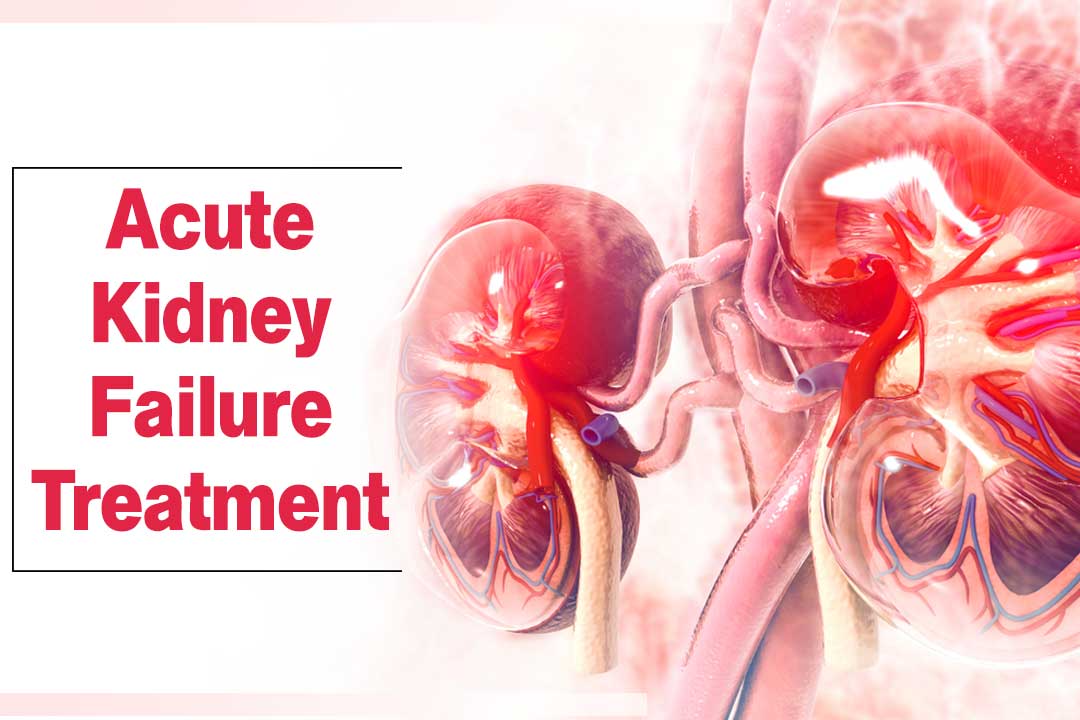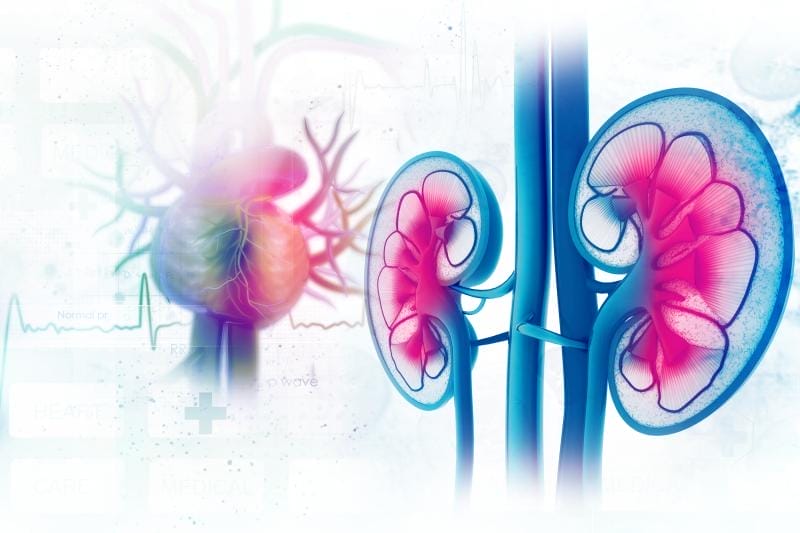Acute kidney Injury (AKI), acute kidney failure (AKF), and acute renal failures (ARF) are all interchangeable terms. It occurs when your kidneys abruptly stop functioning correctly. Acute Kidney Failure (AKF) might result in conditions ranging from a slight decline in kidney function to total renal failure.
AKI typically develops as a consequence of another major illness. Contrary to what the name implies, it does not occur as a result of a physical injury to the kidneys. Typically, it has been observed in older persons suffering with some other illnesses and has caused any type of kidney damage. Early identification and quick treatment of AKI are very crucial. Without prompt treatment, an abnormal amount of salts and substances accumulates in the body, impairing the functionality of other organs.
Whenever kidneys functioning stops completely, one may require outside support from dialysis or it could lead to death. AKI can affect children and adults at a young age too.

Acute kidney failure is curable and reversible to an extent with Ayurvedic kidney Treatment. Ayurvedic medicine for kidney failure has provided immense benefits and helped patients recover successfully.
Kidney failure treatment in ayurveda includes the use of herbal medicines and change in lifestyle that will support a patient to recover faster. Ayurvedic medicine for kidney failure has the ability to rejuvenate the body organs.
Symptoms of Acute Kidney Failure:
- Weakness
- Diarrhea
- Dehydration
- Abnormal urination
- Mental confusion
- Drowsiness-sleepiness and tiredness
AKI should be treated seriously even if it does not lead to complete renal failure. It has an impact on the entire body, alters how the body processes some medications, and could worsen some pre-existing illnesses.
Chronic kidney disease, in which the kidneys gradually lose function over time, is different from AKI.
Who’s At Risk Of Acute Kidney Failure?
You may suffer from AKF if you:
- Age more than 65 years
- Suffer from any other kidney problem or a long-term disease like heart failure, liver disease or diabetes
- Get dehydrated and are unable to maintain your fluid intake
- Find any blockage in your urinary tract
- Suffer sepsis or any other severe infection
- Take certain medicines like ibuprofen, or blood pressure medicines or diuretics.

Causes Of Acute Kidney Injury
It is seen in most cases that AKI are caused due to reduced blood flow to the kidneys. It is commonly observed in people suffering from another health condition.
The reasons for reduced blood flow could be:
- The heart pumping less than usual blood due to heart failure, liver failure, or sepsis
- Low blood volume following bleeding, significant vomiting or diarrhoea, or severe dehydration
- Certain medications, such as ACE inhibitors, certain diuretics, or NSAIDs, that lower blood pressure or blood flow to the kidneys.
- Kidney stones
- A problem with the kidney itself, such as inflammation of the kidney’s filters (glomerulonephritis), the blood arteries (vasculitis), or other kidney structures, may also be the source of AKI.
- This could be brought on by a reaction to certain medications, an illness, or the liquid dye used in certain kinds of X-rays.
- It may occasionally be the result of a blockage obstructing the kidneys’ drainage, such as a tumour or an enlarged prostate.

Complications Of Acute Kidney Injury Includes:
The most common and serious complications of acute kidney injury include:
- buildup of high levels of potassium in the blood. Severe cases of acute kidney failure, with high levels of potassium can lead to muscle weakness, paralysis and heart rhythm problems
- Too much fluid in the body. This could lead to edema in arms and legs or in few cases pulmonary edema i.e. edema of lungs. The difficulty in breathing is due to pulmonary edema.
- metabolic acidosis i.e. acidic blood. Increase in acidity of blood causes nausea, vomiting, drowsiness and breathlessness
- Chest pain. When the lining that covers your heart (pericardium) becomes inflamed, you may have chest pain as a pain in your heart.
- Acidic blood (metabolic acidosis). When the acidity of your blood increases due to acute kidney failure, you may end up with nausea, vomiting, drowsiness, and breathlessness.
- Muscle weakness. Whenever the proportion of body’s fluids and electrolytes are misbalanced, one experiences muscle weakness. In serious conditions, it can lead to paralysis and heart rhythm problems.
- Permanent kidney damage. Acute kidney failure can turn up as a chronic disease. Then your kidneys may entirely stop working. This stage is considered as end-stage renal disease. If someone reaches this state, one has to undergo permanent dialysis (to filter your blood and remove toxins) or move towards a kidney transplant.
- Death. Acute kidney failure can be a cause of death too.

Acute Kidney Failure Treatment in Ayurveda
Ayurveda has a different viewpoint for diseases. Ayurveda works on a specific line of treatment for the management of diseases like kidney failure, either chronic or acute. The changing lifestyle, intake of incompatible foods, stress, and frequent intake of un-prescribed medicines can be a reason for acute kidney failure. Ayurveda provides effective treatments for the problems related to acute kidney diseases. The stressful and expensive process of kidney dialysis and transplant can be treated to some extent with the ayurvedic kidney treatments.

